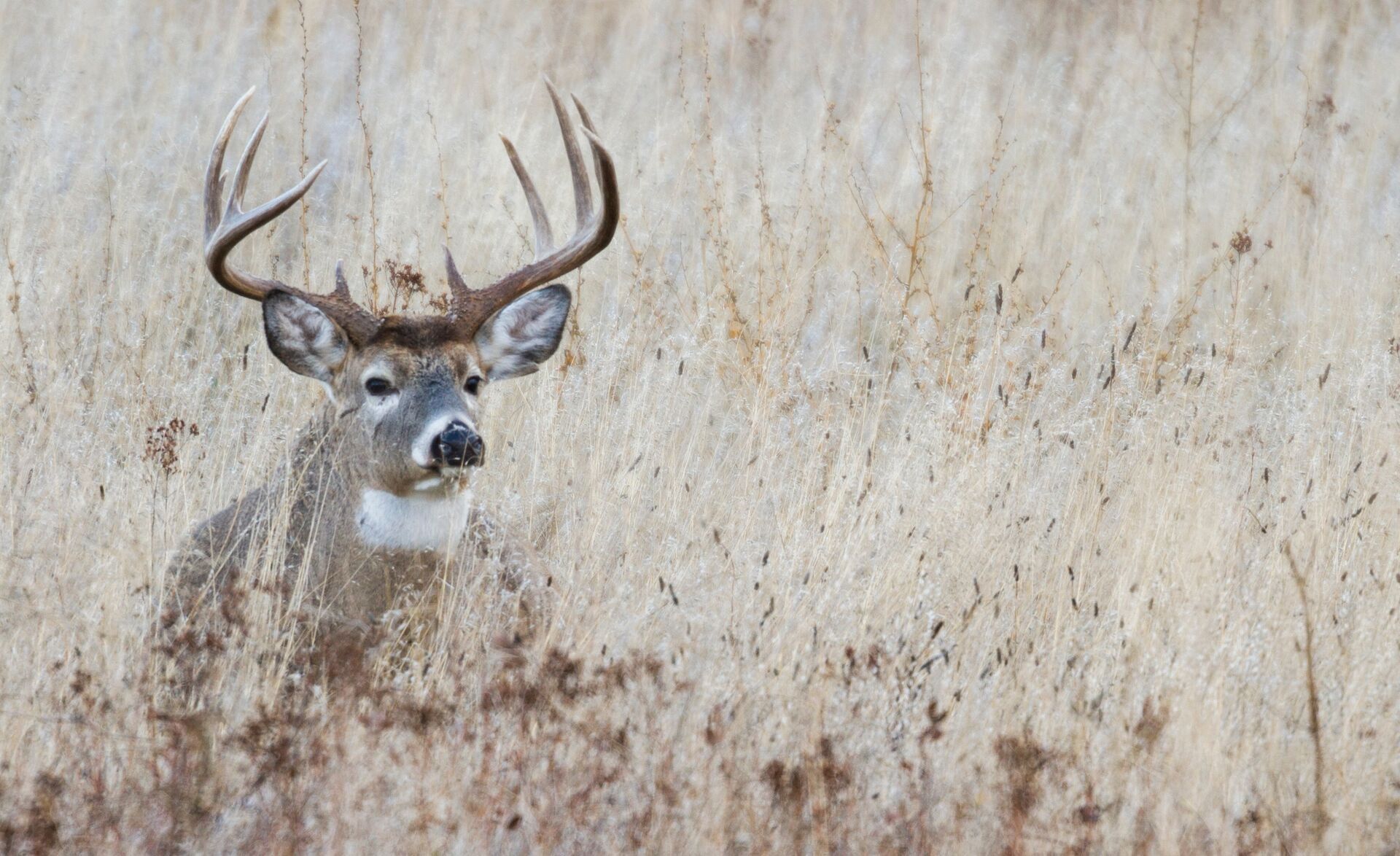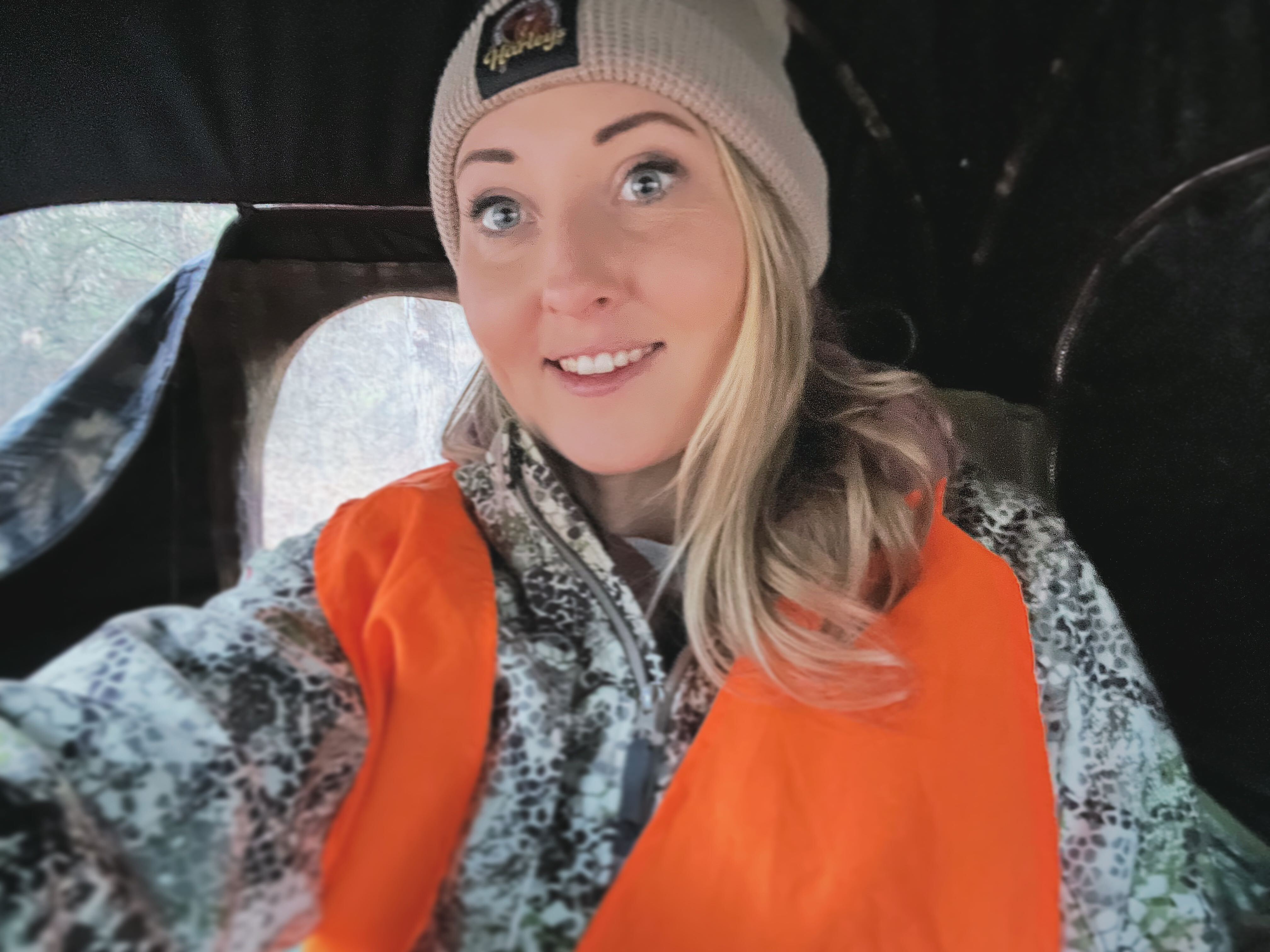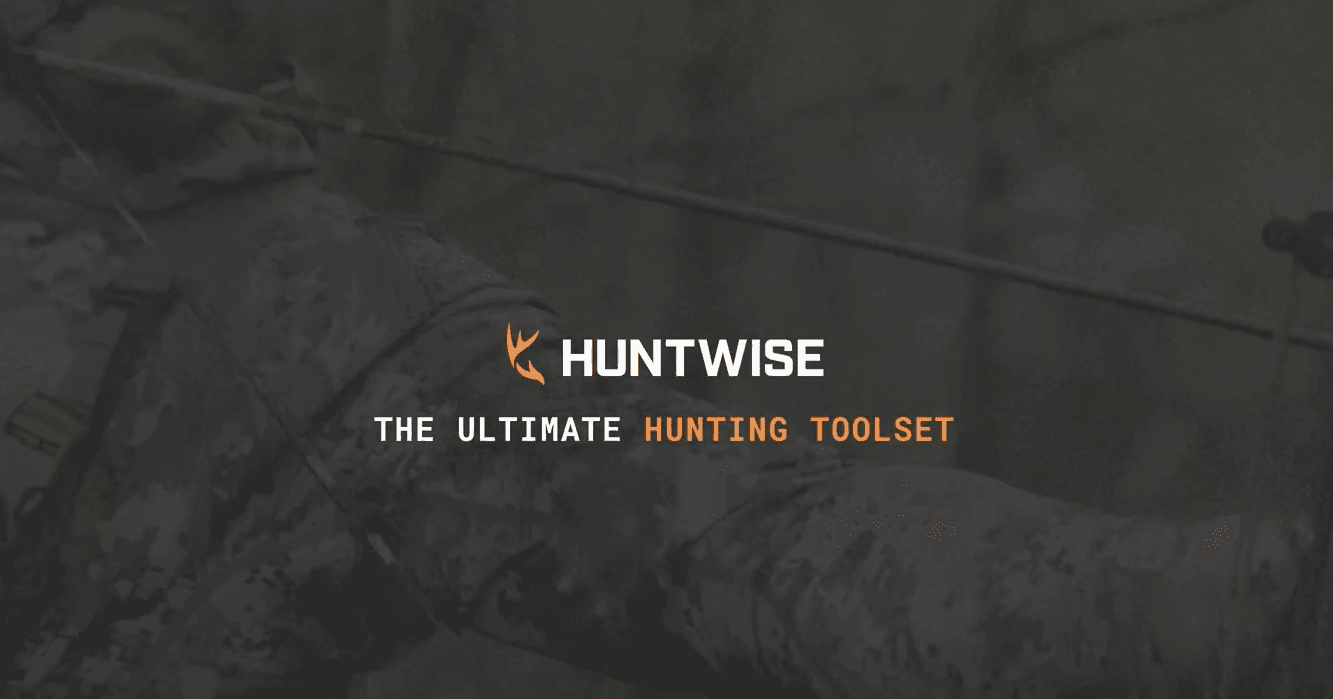The whitetail population estimate is around one million, and North Carolina's geographic diversity, extending from the Appalachian mountains in the West to the Atlantic coastal plains of the East, means there are opportunities for every type of hunter looking to challenge themselves or have a great time with a more relaxed approach.
So, when is NC deer season for 2025? This guide looks at season dates, regulations, licensing requirements, and some North Carolina deer season hunting best practices to help you target these elusive deer (they don't call them the phantoms of the woods for nothing).
Updated May 19, 2025
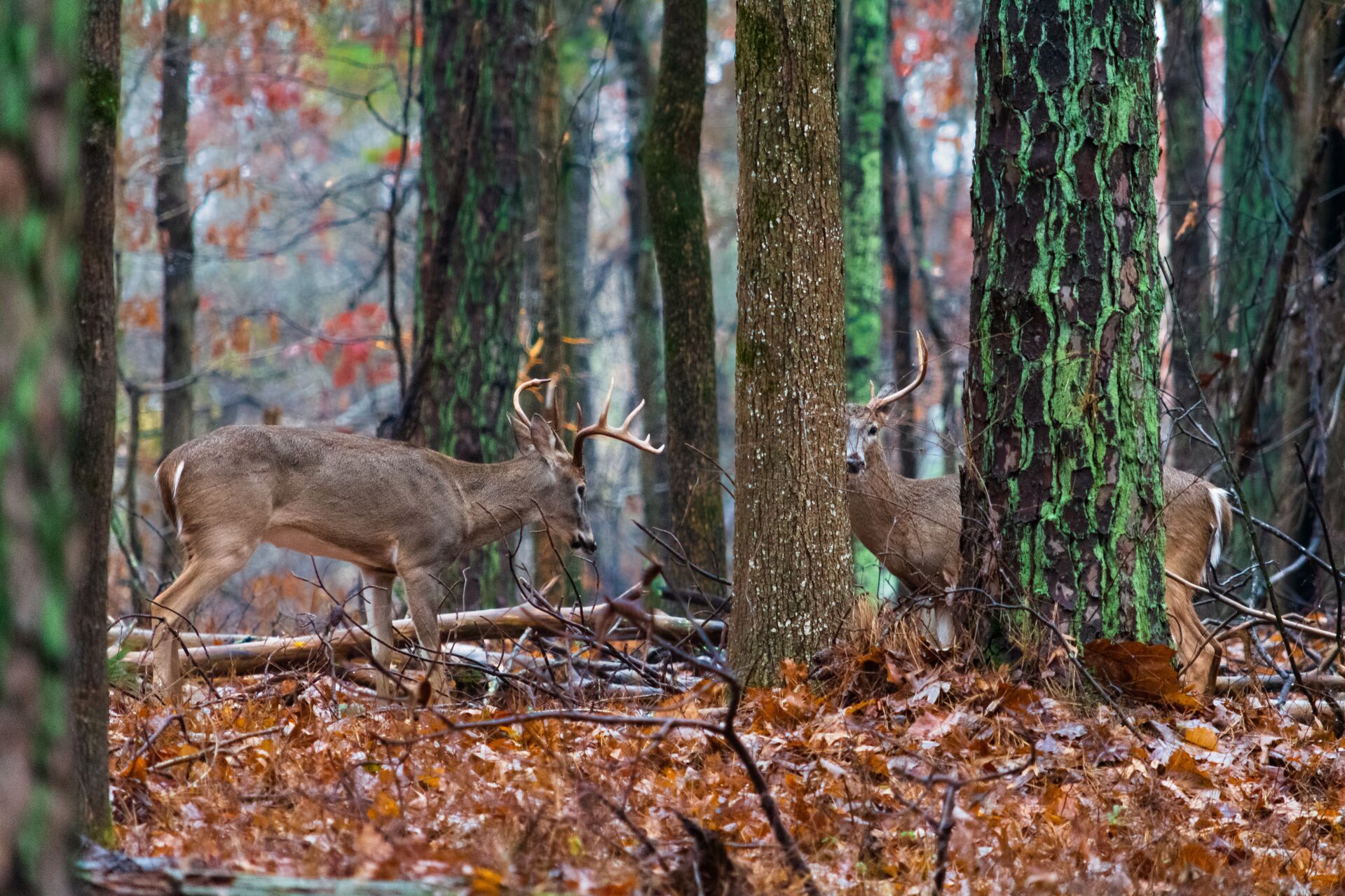
The 2025 North Carolina Deer Seasons
The North Carolina Wildlife Resources Commission (NCWRC) is the state agency that sets and administers the deer (and other game species) seasons and regulations. These rules establish the foundation for ethical hunting, game management, and ecological balance.
North Carolina hunting dates are based on zones promoting a more targeted administration and management approach.
So, when is deer season in NC? Here are the 2025 deer hunting dates:
Northeastern and Southeastern Zones
- Archery: September 13 – October 3, 2025
- Blackpowder: October 4 – 17, 2025
- Gun: October 18, 2025 – January 1, 2026
Central Zone
- Archery: September 13 – October 31, 2025
- Blackpowder: November 1 – 14, 2025
- Gun: November 15, 2025 – January 1, 2026
Northwestern Zone
- Archery: September 13 – November 7, 2025
- Blackpowder: November 8 – 21, 2025
- Gun: November 22, 2025 – January 1, 2026
Western Zone
- Archery: September 13 – November 14, 2025
- Blackpowder: November 15 – 28, 2025
- Gun: November 29, 2025 – January 1, 2-26
Urban Deer Season
- Archery Only: January 10 – February 15, 2026
Youth Hunting Dates
- Statewide: September 27 – 28, 2025
- Western Deer Zone: November 27 – 28, 2025
While we always work to provide accurate information in our guides, be sure to double-check specific licensing, bag limits, season dates, and hunting hours for your intended hunting zone, as they can vary from region to region.
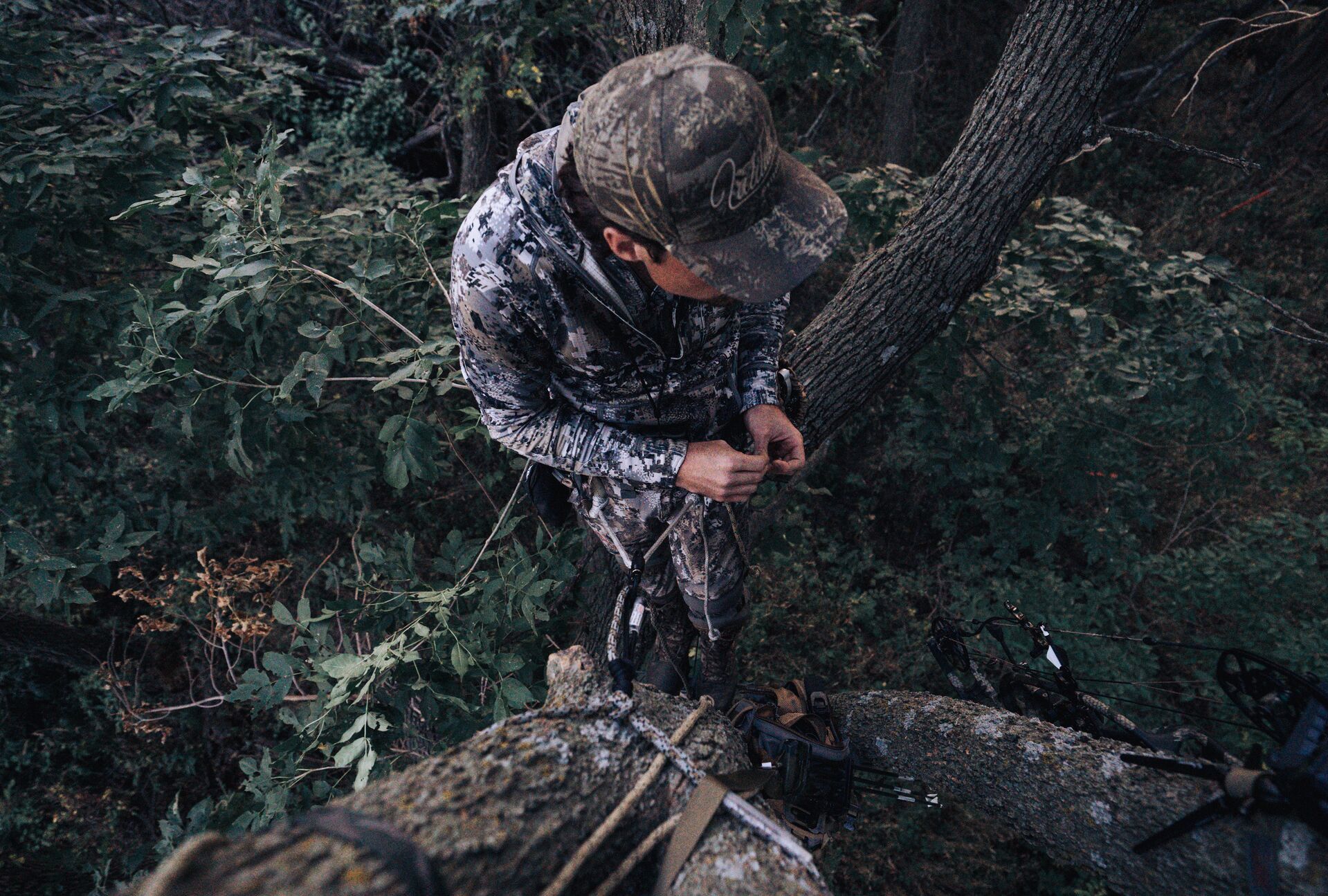
Licensing and Requirements to Hunt in North Carolina
All hunters operating in North Carolina must have a resident, non-resident, or a particular license category (veteran, disabled, youth, etc.). Hunters can purchase licenses through the Go Outdoors North Carolina Page or in person via a Wildlife Service Agent.
If you're a first-time hunter in North Carolina or under 16 years old and plan to hunt without a mentor, you will also need a hunter education certificate to fulfill the requirements before attaining a hunting license.
North Carolina offers a full range of licenses, including combination, lifetime, and shorter-term options. Consider how frequently you intend to hunt and whether you'd like to chase some trout in the inland waters between hunting sessions or target other species.
Report It
Reporting big game is a requirement in North Carolina. Before skinning or harvesting a deer, hunters must report the kill either on a valid paper Big Game Harvest Report Card or an electronic version on their mobile device. Online registration can be completed even without mobile service.
Bag Limits
North Carolina bag limits are generous, at six per season (two antlered, four antlerless). So, if your goal is to fill the freezer this season, you can harvest a considerable amount of game meat for their freezers.
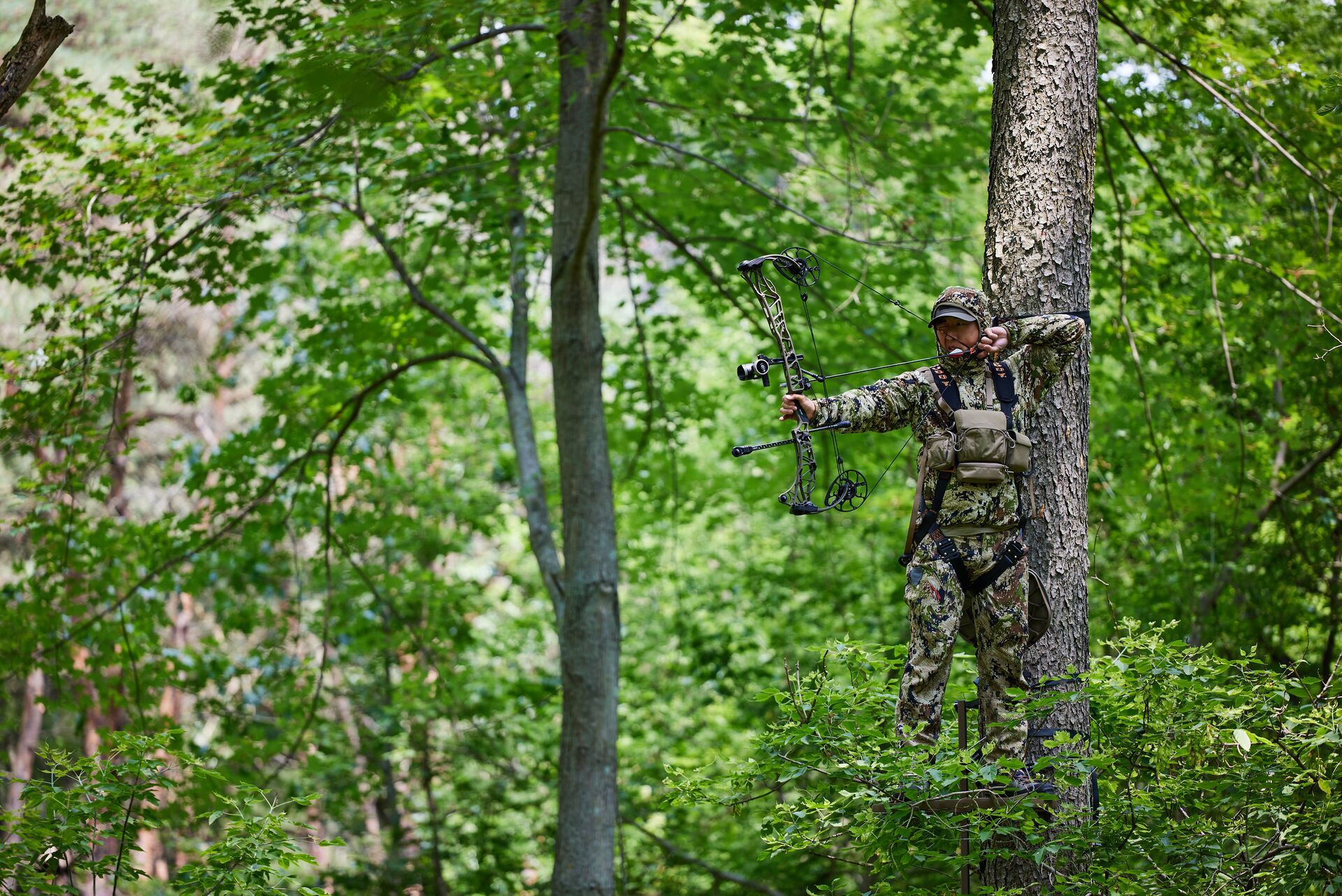
Hunting Methods and Equipment
With season dates and bag limits in mind, make sure you also understand the legal ways you can take deer in North Carolina.
Archery Equipment
Specific regulations surround using archery and archery equipment during the deer hunting seasons in NC to ensure a clean, ethical kill. Longbows, recurve bows, compound bows, and crossbows are all permitted bow types as long as they fit within the following specifications:
- Longbows and recurve bows must have 40 pounds of minimum pull weight
- Compound bows must have 35 pounds minimum pull
- Crossbows must have 100 pounds of minimum pull
Regarding arrowheads, a broadhead must be used with a width of seven-eighths of an inch, or a mechanical opening broadhead with seven-eighths of an inch when open is required.
Muzzleloader Gear
The muzzleloading season allows hunters to extend their hunting season in a classification that historically experiences less hunting pressure than other open dates.
During this season, hunters are permitted to use black powder shotguns, rifles, and handguns, which are defined as any firearm that utilizes a matchlock, flintlock, percussion cap, or similar ignition system.
Firearm Regulations
Fully automatic firearms are not permitted for hunting in North Carolina. Additionally, rifles chambered for .22 rimfire cartridges and centerfire rifles of .23 caliber or smaller are prohibited for hunting big game in NC.
Hunters are permitted to use rifles, shotguns, and handguns as long as they meet the caliber and barrel length requirements specified by the state.
Only hunting ammunition may be used, and solid balls or slugs are prohibited.
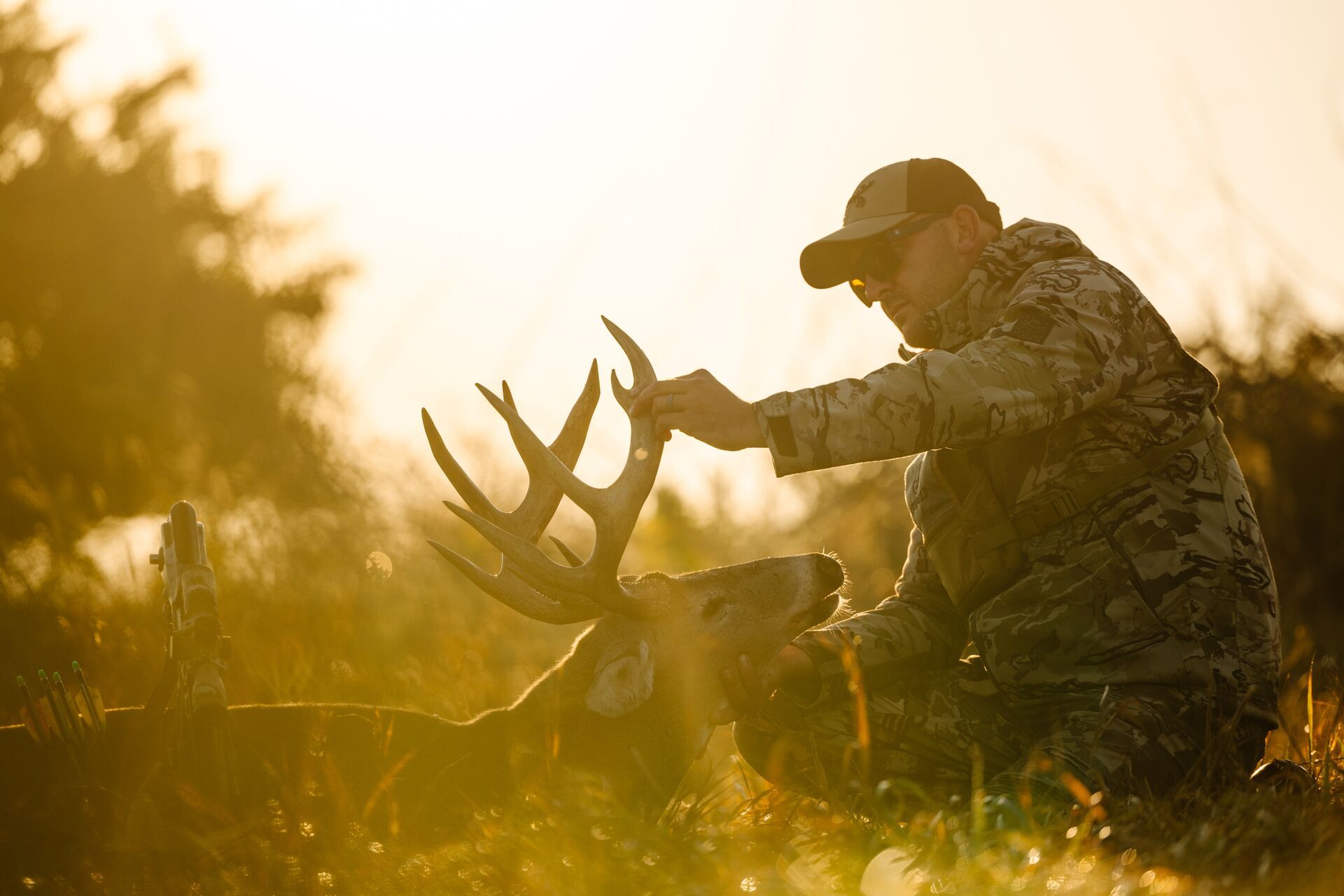
NC Deer Hunting Best Practices
I always consider scouting hunting locations as a question of "aperture."
You generally start wide by using an online mapping tool such as HuntWise to target desirable locations; these will be close to agricultural feeding plots, potential bedding areas, zones with water access, or areas that recorded a high deer cultivation number in the season prior.
Additionally, the topographical and 3D features of the HuntWise hunting app can be leveraged to look for ridges, bottom flats, and creeks.
After finding and marking high-potential areas, dial in the aperture with in-person scouting methods.
Set trail cameras in your intended zones to note deer movement patterns. Depending on your hunting style, this will provide insights into potential tree stands or blind locations.
Finally, burn some boot leather and spend some time in your zone looking for droppings, rubs, scrapes, and other indications of deer activity in the area.
Scent control is essential during this time. Always hunt with the wind in your face. Consider odor-neutralizing fabrics and scent products you can spray over hunting gear to help mask any scent issues.
Shot Placement is Crucial
You can shoot a deer in several spots, and shot placement will depend on the deer's positioning and your line of fire.
However, a heart shot directly in line with the center of its front leg, with the upper portion of the heart positioned halfway between the animal's back and belly, is always a solid shot as it will provide rapid bleeding and an instant kill.
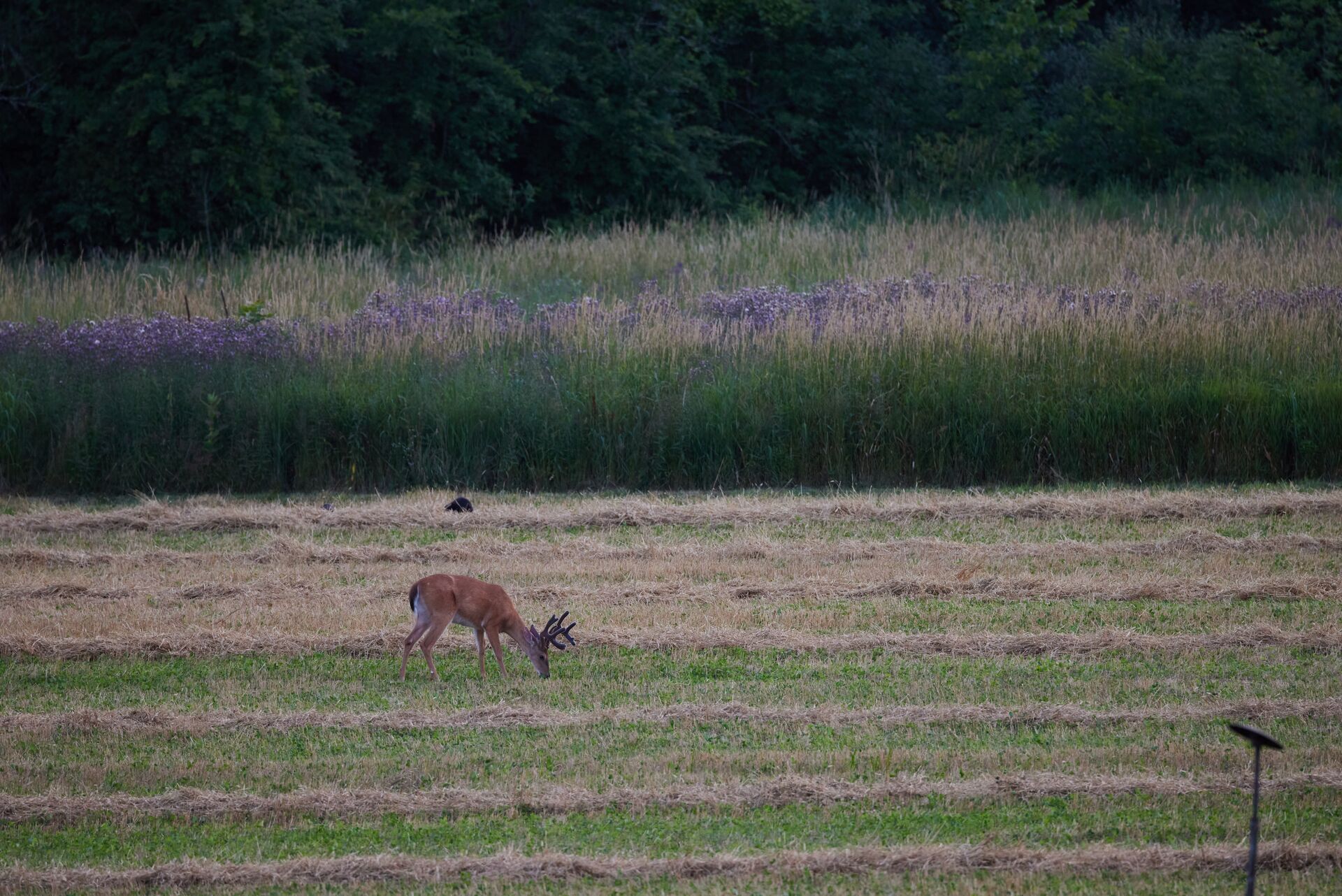
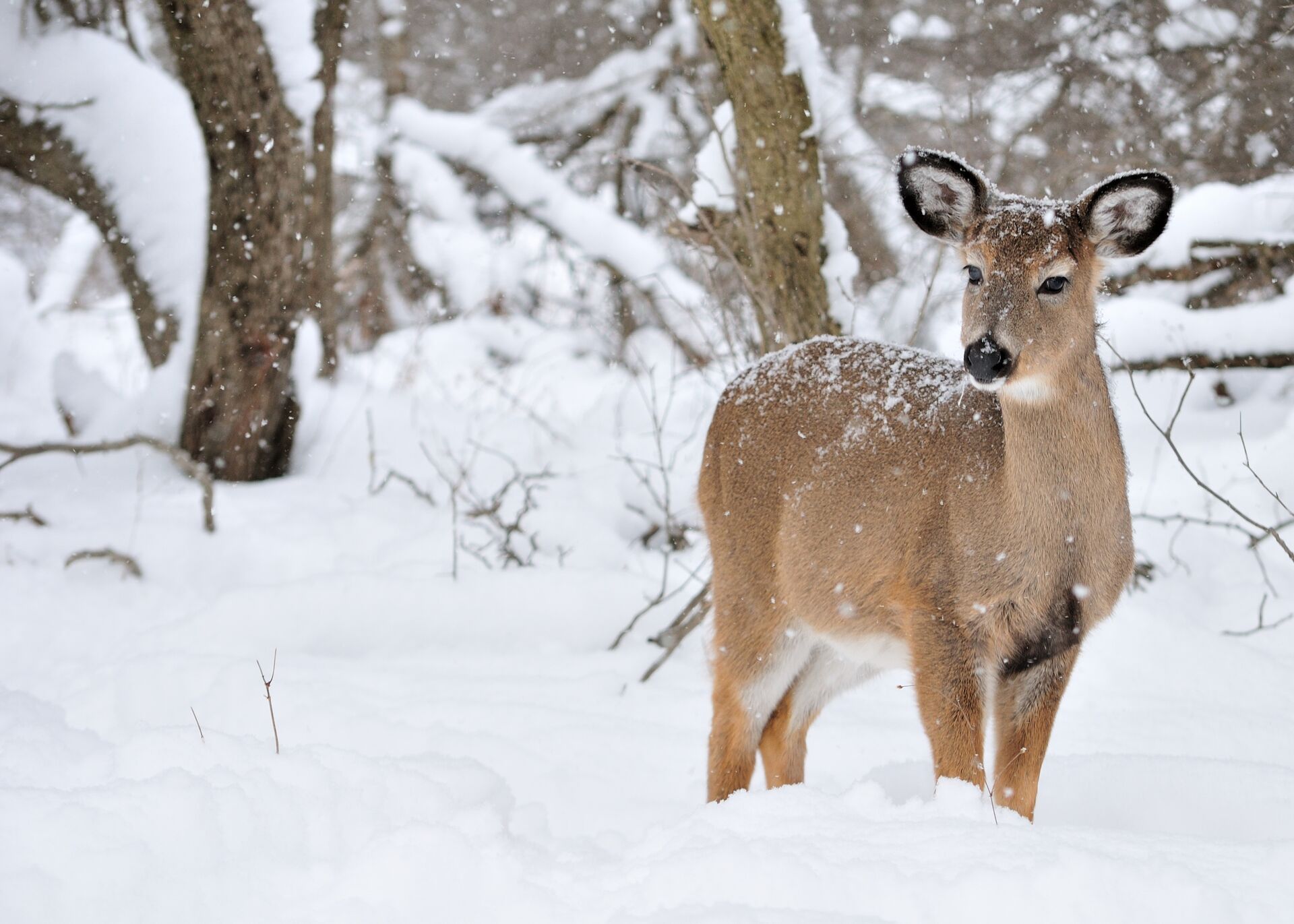
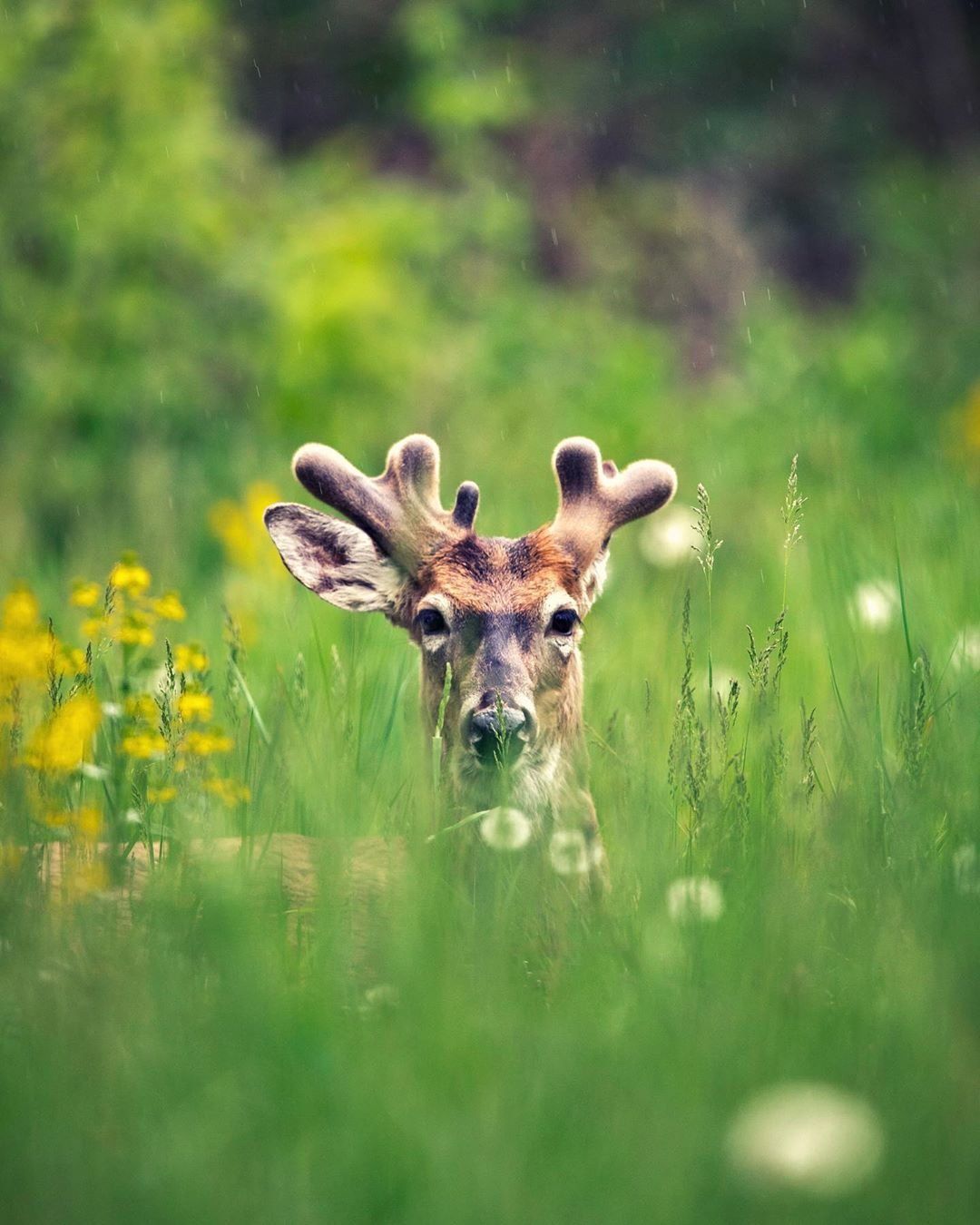 Deer
Deer Deer
Deer Deer
Deer